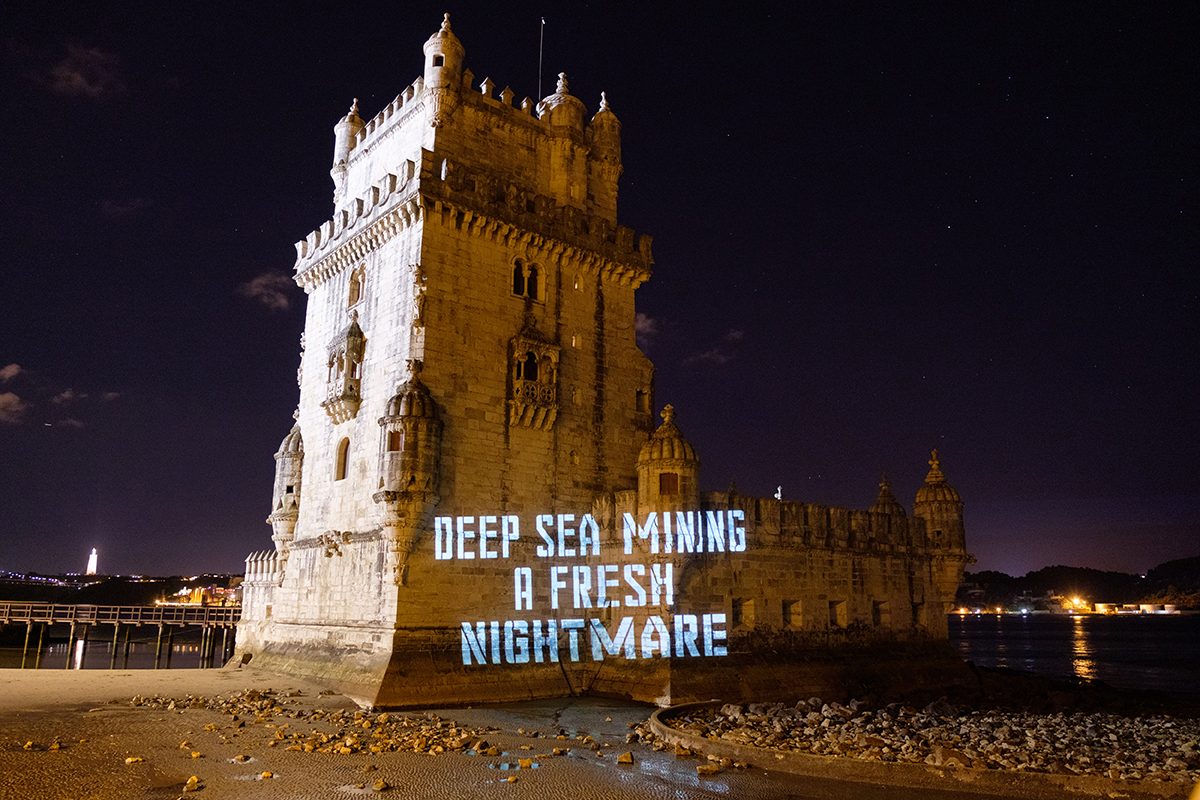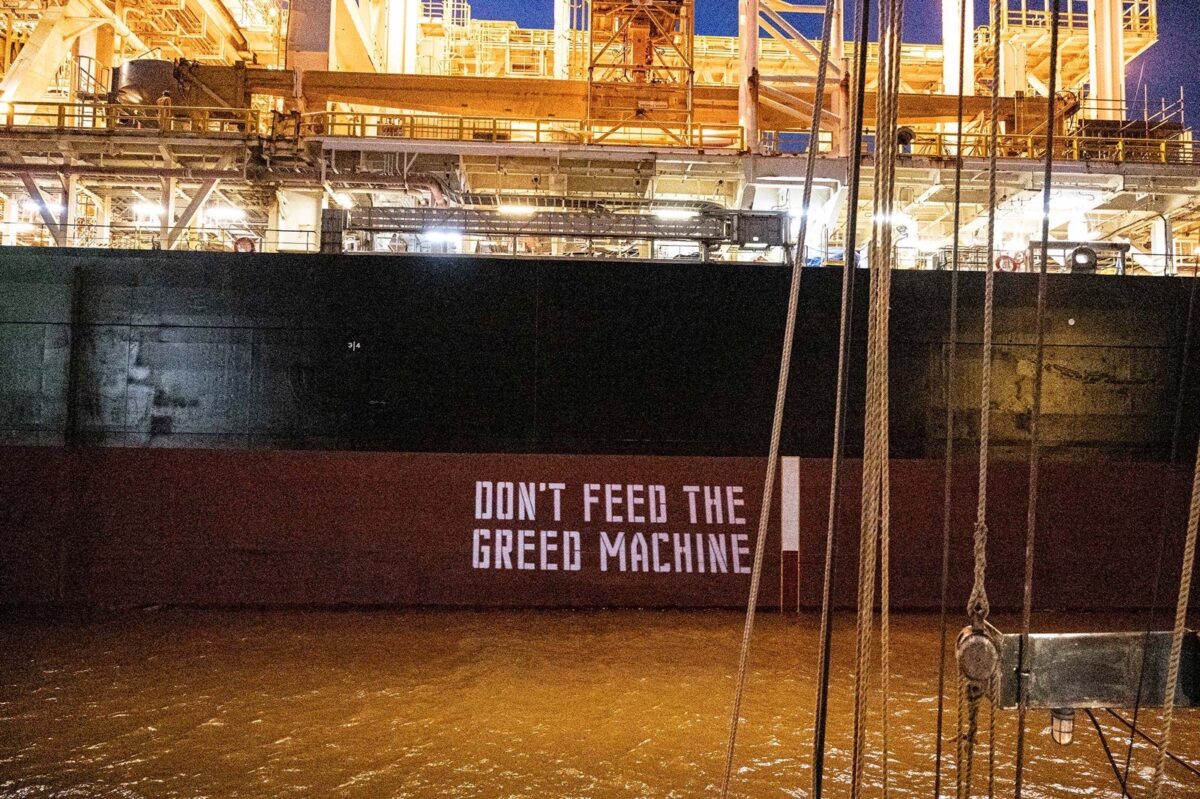Rescuing the Sea? UNCLOS at 40
04.11.2022

By Guy Standing, Professorial Research Associate, SOAS University of London, and author of The Blue Commons: Rescuing the Economy of the Sea.
On December 10 this year it will be forty years since the UN Convention on the Law of the Sea (UNCLOS) was adopted, after a quarter of a century of negotiations. The UN Secretary General at the time described it as ‘possibly the most significant legal instrument of this century.’
Many have acclaimed its success, including a recent report from the House of Lords. However, it is worth remembering that the Maltese diplomat who inspired it, Arvid Pardo, was bitterly disappointed. Wanting it to protect the commons for everybody, he lamented, ‘All that is left of the common heritage of mankind is a few fish and a little seaweed.’
Although the seas generate about 10% of global GDP and ‘blue growth’ is much greater than on land, what is happening in the blue economy receives very little political attention, even from Greens. Perhaps what is out of sight is out of political mind. Whatever the reason, the neglect must be rectified.
UNCLOS gave the green light for the largest enclosure of the commons in history. Following the precedent set by the United States in 1945 when, in an act of imperial power, the Truman Proclamation unilaterally claimed US ownership of the seas 200 nautical miles from its shores, UNCLOS granted the same right to all countries with coastlines. Over a third of the oceans – 138 million square kilometres – was handed to nation states as Exclusive Economic Zones (EEZs). This conversion to state property created conditions for what has become an ongoing privatisation bonanza, increasingly dominated by global finance.
the largest enclosure of the commons in history
UNCLOS will be tested sorely next year, when depending on your point of view, we could see a Wild West frenzy of deep sea mining or a new Industrial Revolution, one based in the sea. But before coming to that, recall what UNCLOS did.
First, the demarcation of EEZs disproportionately rewarded the former colonial powers owning isolated islands as well as those with long coastlines. Thus, France (the largest beneficiary) and the United States each obtained over 11 million square kilometres, Australia 8.5 million, Russia 7.6 million, the UK 6.8 million. So, for instance, the UK now owns sea space that is 27 times as much as its total land area.
By contrast with the gains made by a few big rich countries and by a few tiny ones, the two most populous countries gained relatively little: India obtained 2.3 million square kilometres and China less than 900,000, which is one reason for its aggressive tactics to claim more of the South China sea for itself.
Second, at the behest of countries with long-distance fishing fleets, fearful of losing access to the world’s best fishing grounds, UNCLOS required countries deemed unable to exploit fishing grounds in their EEZs fully to allow foreign fisheries to catch the ‘surplus’. This was to prove disastrous for developing countries, notably in Africa. The Soviet Union and then Russia, the USA, Japan, Spain and other European countries, joined later by China, made long-term deals or concluded joint ventures with developing countries that gave foreign fishing corporations nearly all the profits and allowed them to overfish with impunity. Both fish populations and many traditional fishing communities have been devastated, with China’s thousands-strong long-distance fishing fleet now the worst offender.
Chinese and other industrial fisheries have also been aided by vast government subsidies amounting to $35 billion a year. Without those subsidies, especially for fuel, most long-distance fishing would not be economic. Yet this year, after years of negotiation, members of the World Trade Organization, charged with tackling harmful subsidies, could only agree on eliminating subsidies for ‘illegal’ fishing, which should not be taking place at all.
Third, UNCLOS failed to protect communities linked to the sea, at a time when the World Bank and other financial agencies were forcing developing countries to adopt ‘structural adjustment’ programmes. Establishment of private property rights and export-led growth were prominent objectives. One result was support for the burgeoning aquaculture industry producing farmed prawns for export, leading to widespread destruction of mangrove forests to make way for coastal prawn ponds. Since the 1980s one-third of the world’s mangroves have disappeared, and with them critical fish breeding grounds, the protection from storms and floods they provide, and the livelihoods of local communities.
Fourth, UNCLOS interpreted ‘the common heritage of mankind’ as sharing the benefits from ocean resources outside the EEZs with all humanity, including the 43 landlocked states, 32 of which are low-income developing countries. However, this principle was applied only to minerals found on the seabed covering about 54% of the ocean floor. And UNCLOS did not specify how the benefits would be shared nor did it question whether those resources should be exploited at all. Instead, it established the International Seabed Authority (ISA) charged with regulating deep-sea mining and devising an appropriate royalty and sharing system.

The ISA came into being in 1994. In the 28 years since, it has failed to produce the intended Mining Code that is supposed to regulate deep-sea mining, a condition set by UNCLOS for commercial exploitation to go ahead. However, in July 2021 the tiny Pacific island nation of Nauru, in collaboration with a Canadian company, triggered an obscure rule that if a country notifies ISA it wants to start deep-sea mining, the ISA has two years to come up with the Code. Otherwise, mining can start without one, raising fears of an unregulated Wild West frenzy in the deep sea.
Since the ISA rules require a consensus of all 167 member countries plus the European Union, the chances of a Mining Code by July 2023 look dim. And the potential ecological damage from deep-sea mining is huge. Massive machines will scour the ocean bed to pick up nodules containing cobalt, lithium and other minerals as well as rare earths, used to manufacture electronic devices, electric vehicles and wind turbines, among other things. Apart from destroying everything in their path, they create sediment plumes that can suffocate coral reefs and other organisms hundreds of miles from the mining site, including areas as yet unexplored. And mining could damage the ocean’s ability to act as a carbon sink, accelerating global warming. For all these reasons, hundreds of scientists and policymakers have called for a moratorium until the impact of deep-sea mining is understood.
Fifth, when UNCLOS was being negotiated, minerals were the only deep-ocean resource considered of potential commercial value. Negotiators did not foresee the technological advances that have led to competition to exploit so-called ‘marine genetic resources’ (MGRs) for use in medicine and cosmetics, among other applications. As of now, over 13,000 MGR patents have been taken out, nearly half by a single company, the German chemical giant, BASF. Entities in just three countries, the USA, Germany and Japan, own 76% of them. A patent gives the owner a monopoly for 20 years, a private property right that sits uncomfortably with the UNCLOS ethos that benefits from ocean resources should be shared.
How to do this for MGRs is among the issues for negotiations on a follow-up UN treaty on the Conservation and Sustainable Use of Marine Biodiversity of Areas Beyond National Jurisdiction, aka the Global Ocean Treaty. Tortuous negotiations have dragged on for years; the latest round in August 2022 was suspended without agreement, with a further ‘final’ round planned for 2023. It is hard to envisage the countries holding the bulk of patents agreeing to a real sharing mechanism.
At the UN Ocean Conference in Lisbon in July this year, the UN Secretary General said tersely, ‘Some people still think they are powerful enough to think international waters should be theirs.’ It is worse than that. It is some people on behalf of their national corporations who think that way.
The ethos behind UNCLOS has been betrayed. There has been no sharing of the benefits of the marine commons, which have gone disproportionately to rich countries, often at the expense of poor nations and coastal communities. Nor has UNCLOS provided a suitable framework to protect the oceans from environmental degradation and possible catastrophe. After forty years a change of course is both essential and urgent.

Photos by João Daniel Pereira, featured and illumination of Torre de Belém and Savannah van den Roovaart, illumination of The Metals Company deep sea mining vessel, ‘Hidden Gem’.
The fate of the Ocean depends on us all.
Our interventions depend on your support.